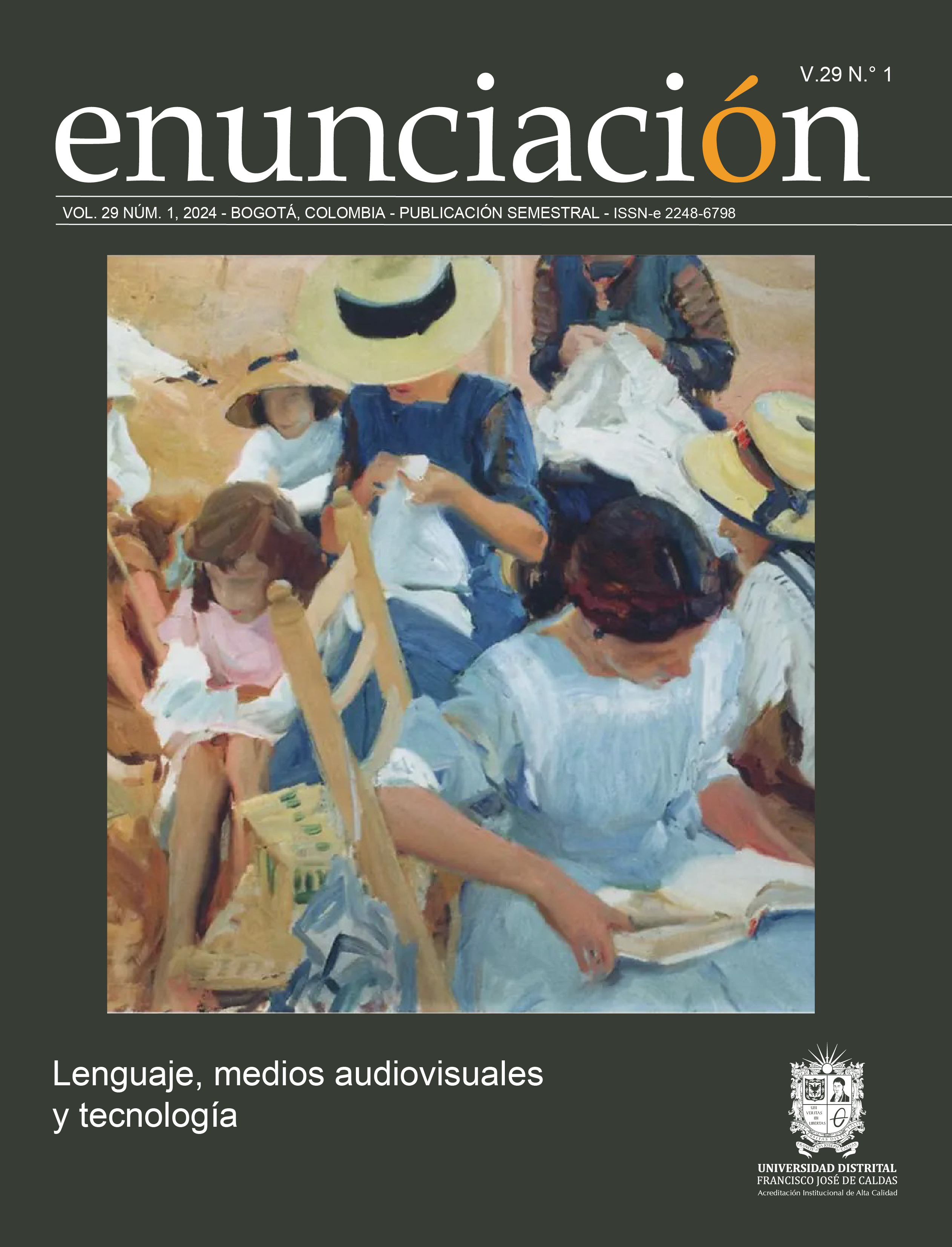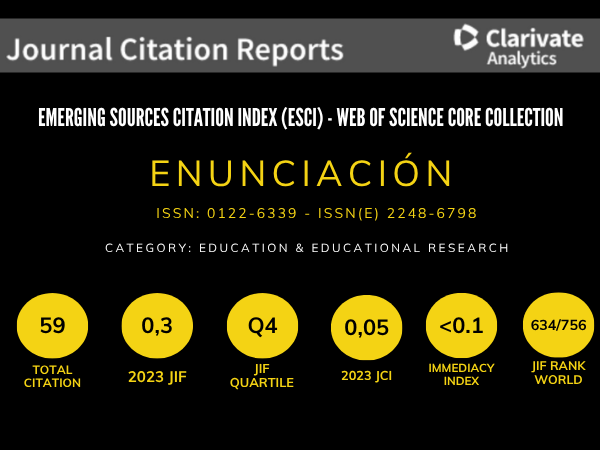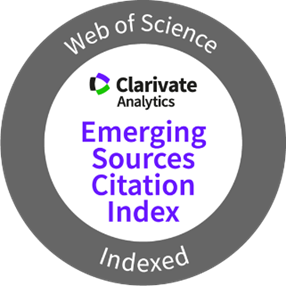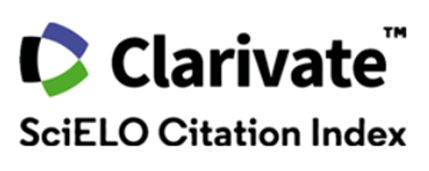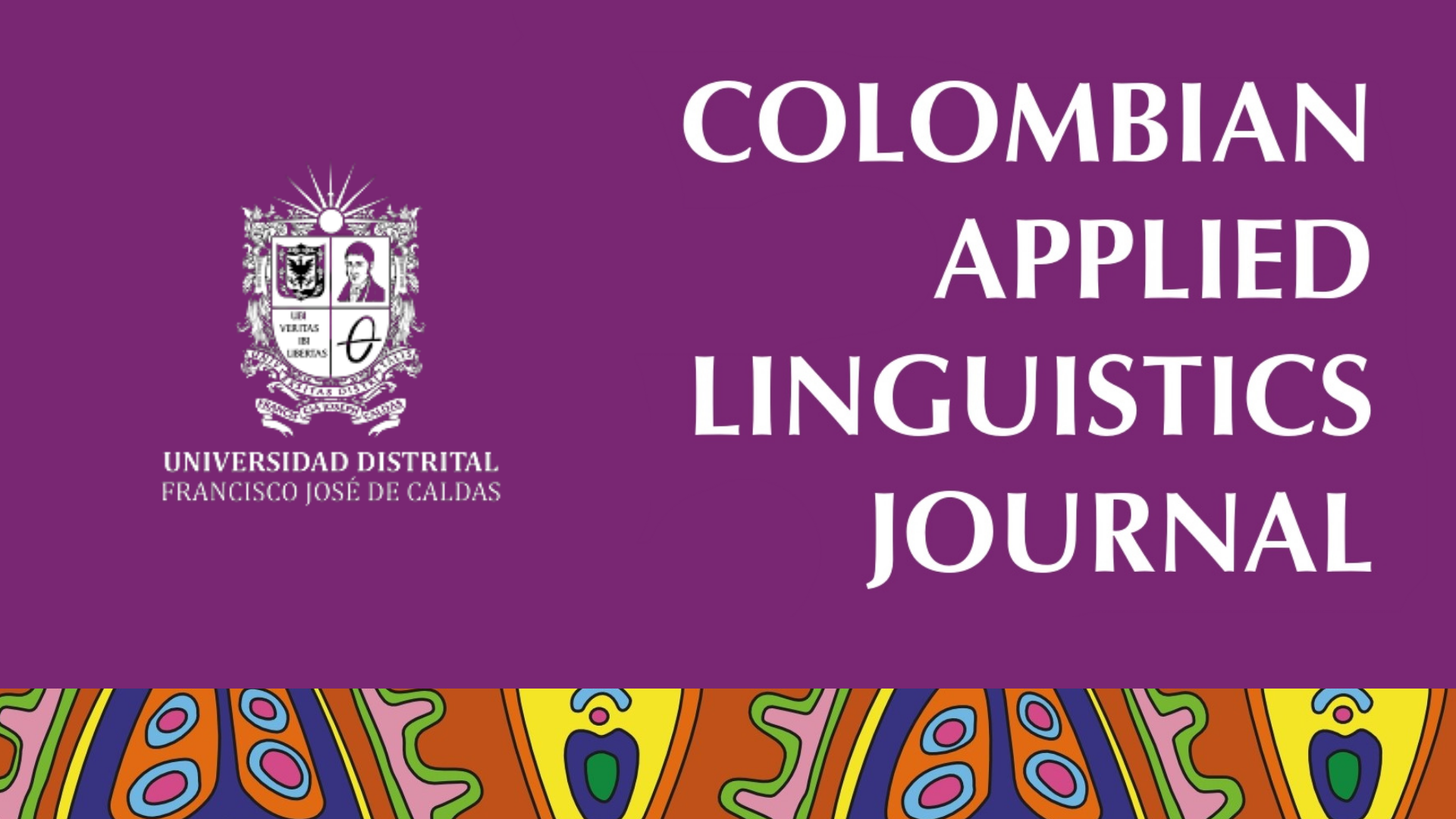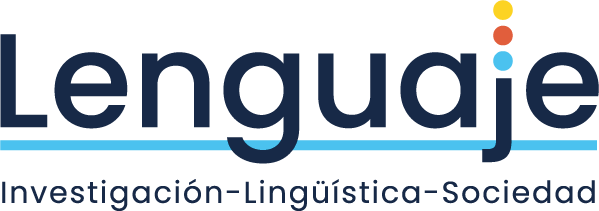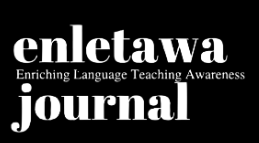DOI:
https://doi.org/10.14483/22486798.22039Publicado:
12-08-2024Número:
Vol. 29 Núm. 1 (2024): Lenguaje, medios audiovisuales y tecnología (Ene-Jun)Sección:
Lenguaje, medios audiovisuales y tecnologíaInteligencia artificial (IA) en las escuelas: una revisión sistemática (2019-2023)
Artificial Intelligence in Schools: A Systematic Review (2019-2023)
Inteligência artificial nas escolas: uma revisão sistemática (2019 - 2023)
Palabras clave:
Inteligencia artificial, formación de docentes, pedagogía, ética, gestión educativa (es).Palabras clave:
Artificial intelligence, teacher training, pedagogy, ethics, educational management (en).Palabras clave:
Inteligência artificial, formação de professores, pedagogia, ética, gestão educacional (pt).Descargas
Referencias
A’mar, F. y Eleyan, D. (2022). Effect of principal s technology leadership on teacher´s technology integration. International Journal of Instruction, 15(1), 781-798. https://doi.org/10.29333/iji.2022.15145a
Alexandre, F., Becker, J., Comte, M.-H., Lagarrigue, A., Liblau, R., Romero, M. y Viéville, T. (2021). Why, What and How to help each citizen to understand artificial intelligence? KI: Kunstliche Intelligenz, 35(2), 191-199. https://doi.org/10.1007/s13218-021-00725-7
An, X., Chai, C. S., Li, Y., Zhou, Y., Shen, X., Zheng, C. y Chen, M. (2023). Modeling English teachers’ behavioral intention to use artificial intelligence in middle schools. Education and Information Technologies, 28(5), 5187-5208. https://doi.org/10.1007/s10639-022-11286-z
Ayanwale, M. A., Sanusi, I. T., Adelana, O. P., Aruleba, K. D. y Oyelere, S. S. (2022). Teachers’ readiness and intention to teach artificial intelligence in schools. Computers and Education: Artificial Intelligence, 3, 100099. https://doi.org/10.1016/j.caeai.2022.100099
Bach, N. X., Thanh, P. D. y Oanh, T. T. (2020). Question analysis towards a Vietnamese question answering system in the education domain. Cybernetics and Information Technologies, 20(1), 112-128. https://doi.org/10.2478/cait-2020-0008
Bonneton-Botté, N., Fleury, S., Girard, N., le Magadou, M., Cherbonnier, A., Renault, M., Anquetil, E. y Jamet, E. (2020). Can tablet apps support the learning of handwriting? An investigation of learning outcomes in kindergarten classroom. Computers and Education, 151, 103831. https://doi.org/10.1016/j.compedu.2020.103831
Chang, D. H., Lin, M. P.-C., Hajian, S. y Wang, Q. Q. (2023). Educational design principles of using AI chatbot that supports self-regulated learning in education: Goal setting, feedback, and personalization. Sustainability, 15(17), 12921. https://doi.org/10.3390/su151712921
Cheng, E. C. K. y Wang, T. (2023). Leading digital transformation and eliminating barriers for teachers to incorporate artificial intelligence in basic education in Hong Kong. Computers and Education: Artificial Intelligence, 5, 100171. https://doi.org/10.1016/j.caeai.2023.100171
Costa-Mendes, R., Oliveira, T., Castelli, M. y Cruz-Jesus, F. (2021). A machine learning approximation of the 2015 Portuguese high school student grades: A hybrid approach. Education and Information Technologies, 26(2), 1527-1547. https://doi.org/10.1007/s10639-020-10316-y
Dai, Y. (2023). Negotiation of epistemological understandings and teaching practices between primary teachers and scientists about artificial intelligence in professional development. Research in Science Education, 53(3), 577-591. https://doi.org/10.1007/s11165-022-10072-8
Deveci Topal, A., Dilek Eren, C. y Kolburan Geçer, A. (2021). Chatbot application in a 5th grade science course. Education and Information Technologies, 26(5), 6241-6265. https://doi.org/10.1007/s10639-021-10627-8
Freestone, M. y Mason, J. (2019). Questions in smart digital environments. Frontiers in Education, 4, art. 98. https://doi.org/10.3389/feduc.2019.00098
Georgara, A., Kazhamiakin, R., Mich, O., Palmero Aprosio, A., Pazzaglia, J.-C., Rodríguez Aguilar, J. A. y Sierra, C. (2023). The AI4Citizen pilot: Pipelining AI-based technologies to support school-work alternation programmes. Applied Intelligence, 53(20), 24157-24186. https://doi.org/10.1007/s10489-023-04758-3
Gray, S. L. (2020). Artificial intelligence in schools: Towards a democratic future. London Review of Education, 18(2), 163-177. https://doi.org/10.14324/LRE.18.2.02
Gresse von Wangenheim, C., Hauck, J. C. R., Pacheco, F. S. y Bertonceli Bueno, M. F. (2021). Visual tools for teaching machine learning in K-12: A ten-year systematic mapping. Education and Information Technologies, 26(5), 5733–5778. https://doi.org/10.1007/s10639-021-10570-8
Guo, Q. (2022). System analysis of the learning behavior recognition system for students in a law classroom: Based on the improved SSD behavior recognition algorithm. Scientific Programming, 2022, 1-11. https://doi.org/10.1155/2022/3525266
Henze, J., Schatz, C., Malik, S. y Bresges, A. (2022). How might we raise interest in robotics, coding, artificial intelligence, STEAM and sustainable development in university and on-the-job teacher training? Frontiers in Education, 7. https://doi.org/10.3389/feduc.2022.872637
Howard, S. K., Swist, T., Gasevic, D., Bartimote, K., Knight, S., Gulson, K., Apps, T., Peloche, J., Hutchinson, N. y Selwyn, N. (2022). Educational data journeys: Where are we going, what are we taking and making for AI? Computers and Education: Artificial Intelligence, 3. https://doi.org/10.1016/j.caeai.2022.100073
Hwang, Y., Choi, E. y Park, N. (2022). The development and demonstration of creative education programs focused on intelligent information technology. Journal of Curriculum and Teaching, 11(5), 155-161. https://doi.org/10.5430/jct.v11n5P155
Inusah, F., Missah, Y. M., Najim, U. y Twum, F. (2023). Agile neural expert system for managing basic education. Intelligent Systems with Applications, 17, 200178. https://doi.org/10.1016/j.iswa.2023.200178
Joo, K. H. y Park, N. H. (2022). Design artificial intelligence convergence teaching and learning model CP3 and evaluations. Journal of Curriculum and Teaching, 11(8), 291-302. https://doi.org/10.5430/jct.v11n8p291
Kajiwara, Y., Matsuoka, A. y Shinbo, F. (2023). Machine learning role playing game: Instructional design of AI education for age-appropriate in K-12 and beyond. Computers and Education: Artificial Intelligence, 5, 100162. https://doi.org/10.1016/j.caeai.2023.100162
Kandlhofer, M., Steinbauer, G., Lassnig, J., Menzinger, M., Baumann, W., Ehardt-Schmiederer, M., Bieber, R., Winkler, T., Plomer, S., Strobl-Zuchtriegl, I., Alfoldi, I. y Szalay, I. (2021). EDLRIS: A European driving license for robots and intelligent systems. KI: Kunstliche Intelligenz, 35(2), 221-232. https://doi.org/10.1007/s13218-021-00716-8
Kaufmann, E. (2021). Algorithm appreciation or aversion? Comparing in-service and pre-service teachers’ acceptance of computerized expert models. Computers and Education: Artificial Intelligence, 2, 100028. https://doi.org/10.1016/j.caeai.2021.100028
Kim, K. y Kwon, K. (2023). Exploring the AI competencies of elementary school teachers in South Korea. Computers and Education: Artificial Intelligence, 4, 100137. https://doi.org/10.1016/j.caeai.2023.100137
Kim, N. J. y Kim, M. K. (2022). Teacher’s perceptions of using an artificial intelligence-based educational tool for scientific writing. Frontiers in Education, 7, 755914. https://doi.org/10.3389/feduc.2022.755914
Lin, X., Liu, H., Sun, Q., Li, X., Qian, H., Sun, Z. y Lam, T. L. (2022). Applying project-based learning in artificial intelligence and marine discipline: An evaluation study on a robotic sailboat platform. IET Cyber-Systems and Robotics, 4(2), 86-96. https://doi.org/10.1049/csy2.12050
Lu, W.-Y. y Fan, S.-C. (2023). Developing a weather prediction project-based machine learning course in facilitating AI learning among high school students. Computers and Education: Artificial Intelligence, 5, 100154. https://doi.org/10.1016/j.caeai.2023.100154
McKenzie, M. y Gulson, K. N. (2023). The incommensurability of digital and climate change priorities in schooling: An infrastructural analysis and implications for education governance. Research in Education, 117(1), 58-72. https://doi.org/10.1177/00345237231208658
McMahon, D. D. y Walker, Z. (2019). Leveraging emerging technology to design an inclusive future with universal design for learning. Center for Educational Policy Studies Journal, 9(3), 75-93. https://doi.org/10.26529/cepsj.639
Niyogisubizo, J., Liao, L., Nziyumva, E., Murwanashyaka, E. y Nshimyumukiza, P. C. (2022). Predicting student’s dropout in university classes using two-layer ensemble machine learning approach: A novel stacked generalization. Computers and Education: Artificial Intelligence, 3, 100066. https://doi.org/10.1016/j.caeai.2022.100066
Nordby, S. K., Bjerke, A. H. y Mifsud, L. (2022). Primary mathematics teachers’ understanding of computational thinking. KI: Kunstliche Intelligenz, 36(1), 35-46. https://doi.org/10.1007/s13218-021-00750-6
Page, M., McKenzie, J., Bossuyt, M., Boutron I., Hoffmann, T., Mulrow, C., Shamseer, L., Tetzlaff, J., Akl, E., Brennan, S., Chou, R., Glanville, J., Grimshaw, J., Hróbjartsson, A., Lalu, M., Li, T., Loder, E., Mayo-Wilson, E., McDonald, S. ... Moher, D. (2021). The PRISMA 2020 statement: An updated guideline for reporting systematic reviews. British Medical Journal, 372(71). https://doi.org/10.1136/bmj.n71
Pangrazio, L. y Gaibisso, L. C. (2020). Beyond cybersafety: The need to develop social media literacies in pre-teens. Digital Education Review, 37, 49-63. https://doi.org/10.1344/DER.2020.37.49-63
Peláez, A., Jacobson, A., Trias, K. y Winston, E. (2022). The Turing teacher: Identifying core attributes for AI learning in K-12. Frontiers in Artificial Intelligence, 5, 1031450. https://doi.org/10.3389/frai.2022.1031450
Reiss, M. J. (2021). The use of AI in education: Practicalities and ethical considerations. London Review of Education, 19(1), 1-14. https://doi.org/10.14324/LRE.19.1.05
Rodríguez García, J. D., Moreno León, J., Román González, M. y Robles, G. (2020). LearningML: A tool to foster computational thinking skills through practical artificial intelligence projects. Revista de Educación a Distancia, 20(63). https://doi.org/10.6018/RED.410121
Rott, K. J., Lao, L., Petridou, E. y Schmidt-Hertha, B. (2022). Needs and requirements for an additional AI qualification during dual vocational training: Results from studies of apprentices and teachers. Computers and Education: Artificial Intelligence, 3, 100102. https://doi.org/10.1016/j.caeai.2022.100102
Saltman, K. J. (2020). Artificial intelligence and the technological turn of public education privatization: In defence of democratic education. London Review of Education, 18(2), 196-208. https://doi.org/10.14324/LRE.18.2.04
Sam, C., Naicker, N. y Rajkoomar, M. (2021). Selection of social media applications for ubiquitous learning using fuzzy TOPSIS. International Journal of Advanced Computer Science and Applications, 12(2), 231-239. https://doi.org/10.14569/IJACSA.2021.0120230
Sanusi, I. T., Olaleye, S. A., Agbo, F. J. y Chiu, T. K. F. (2022). The role of learners’ competencies in artificial intelligence education. Computers and Education: Artificial Intelligence, 3, 100098. https://doi.org/10.1016/j.caeai.2022.100098
Sañudo Guerra, L. S. (2022). Del abandono a la permanencia escolar en Secundaria. Profesorado: Revista de Currículum y Formación del Profesorado, 26(1), 213-233. https://doi.org/10.30827/profesorado.v26i1.13535
Soboleva, E. V. (2019). Quest in a digital school: The potential and peculiarities of mobile technology implementation. European Journal of Contemporary Education, 8(3), 613-626. https://doi.org/10.13187/ejced.2019.3.613
Soboleva, E. V., Suvorova, T. N., Grinshkun, A. V. y Bocharov, M. I. (2021). Applying gamification in learning the basics of algorithmization and programming to improve the quality of students’ educational results. European Journal of Contemporary Education, 10(4), 987-1002. https://doi.org/10.13187/EJCED.2021.4.987
Sperling, K., Stenliden, L., Nissen, J. y Heintz, F. (2022). Still w(AI)ting for the automation of teaching: An exploration of machine learning in Swedish primary education using Actor-Network Theory. European Journal of Education, 57(4), 584-600. https://doi.org/10.1111/ejed.12526
Vachkova, S. N., Petryaeva, E. Y., Kupriyanov, R. B. y Suleymanov, R. S. (2021). School in digital age: How big data help to transform the curriculum. Information (Switzerland), 12(1), 1-14. https://doi.org/10.3390/info12010033
Wang, T. y Cheng, E. C. K. (2021). An investigation of barriers to Hong Kong K-12 schools incorporating artificial intelligence in education. Computers and Education: Artificial Intelligence, 2, 100031. https://doi.org/10.1016/j.caeai.2021.100031
Webb, M. E., Fluck, A., Magenheim, J., Malyn-Smith, J., Waters, J., Deschênes, M. y Zagami, J. (2021). Machine learning for human learners: opportunities, issues, tensions and threats. Educational Technology Research and Development, 69(4), 2109-2130. https://doi.org/10.1007/s11423-020-09858-2
Wu, W., Burdina, G. y Gura, A. (2023). Use of Artificial Intelligence in Teacher Training. International Journal of Web-Based Learning and Teaching Technologies, 18(1), 1-15. https://doi.org/10.4018/IJWLTT.331692
Xia, Q., Chiu, T. K. F., Chai, C. S. y Xie, K. (2023). The mediating effects of needs satisfaction on the relationships between prior knowledge and self-regulated learning through artificial intelligence chatbot. British Journal of Educational Technology, 54(4), 967-986. https://doi.org/10.1111/bjet.13305
Yau, K. W., Chai, C. S., Chiu, T. K. F., Meng, H., King, I. y Yam, Y. (2023). A phenomenographic approach on teacher conceptions of teaching artificial intelligence (AI) in K-12 schools. Education and Information Technologies, 28(1), 1041-1064. https://doi.org/10.1007/s10639-022-11161-x
Zhai, X., He, P. y Krajcik, J. (2022). Applying machine learning to automatically assess scientific models. Journal of Research in Science Teaching, 59(10), 1765-1794. https://doi.org/10.1002/tea.21773
Zhang, J. (2023). School wireless network classroom teaching system based on artificial intelligence. Applied Artificial Intelligence, 37(1). https://doi.org/10.1080/08839514.2023.2219563
Zhao, X., Guo, Z. y Liu, S. (2021). Exploring key competencies and professional development of music teachers in primary schools in the era of artificial intelligence. Scientific Programming, 2021, 1-9. https://doi.org/10.1155/2021/5097003
Cómo citar
APA
ACM
ACS
ABNT
Chicago
Harvard
IEEE
MLA
Turabian
Vancouver
Descargar cita
Recibido: 11 de abril de 2024; Aceptado: 22 de julio de 2024
Resumen
La inteligencia artificial (IA) ha surgido como una herramienta innovadora, con programas como ChatGPT, Gemini, entre otros, con un gran potencial para transformar la educación, y para adaptarse a plataformas digitales existentes y revolucionando los procesos de enseñanza. Este artículo tiene el objetivo de proporcionar una visión amplia y equilibrada del panorama actual de la IA en las escuelas, para lo cual se realizó una revisión sistemática, mediante la metodología Prisma (preferred reporting items for systematic reviews and meta-analyses), a partir de la cual se encontraron 52 artículos indexados en la base de datos Scopus durante el periodo de 2019 a 2023, que abordaban la temática de la IA en las escuelas. Según los resultados, hay cuatro áreas temáticas clave que destacan el impacto de la IA: (a) procesos de enseñanza; (b) pedagogía, currículo y formación docente; (c) gestión educativa, y (d) implicaciones éticas. Se concluyó que esta tecnología presenta un gran potencial para transformar la educación, por medio de herramientas innovadoras; mejorar la calidad del aprendizaje; optimizar la gestión educativa, y abordar desafíos como la personalización de la enseñanza y la evaluación del rendimiento. No obstante, su implementación debe ser planificada meticulosamente, y enmarcada en principios éticos sólidos y acompañada de un proceso de formación docente adecuado para garantizar el uso responsable y efectivo de esta tecnología en el ámbito educativo, por lo que se requiere de la colaboración permanente de docentes, profesionales e investigadores de la educación y responsables políticos para aprovechar las oportunidades que ofrece la IA y trabajar en conjunto para construir un futuro educativo más equitativo, inclusivo y de calidad.
Palabras clave:
inteligencia artificial, formación de docentes, pedagogía, ética, gestión educativa.Abstract
Artificial intelligence (AI) has emerged as an innovative tool, with applications such as ChatGPT and Gemini, among others, that show great potential to transform education, adapting to existing digital platforms and revolutionizing teaching processes. This article aims to provide a complete and balanced view of the current landscape of AI in schools, for which a systematic review was carried out using the PRISMA methodology. This allowed finding 52 articles indexed in the Scopus database between 2019 and 2023, which addressed the topic of AI in schools. The results revealed four key thematic areas that highlight the impact of AI: 1) teaching processes; 2) pedagogy, curriculum, and teacher training; 3) educational management; and 4) ethical implications. It was concluded that this technology has great potential to transform education through innovative tools aimed at improving the quality of learning, optimizing educational management, and addressing challenges such as the personalization of teaching and performance assessment. However, its implementation must be meticulously planned, framed in solid ethical principles, and accompanied by an adequate teacher training process that ensures its responsible and effective use in the field of education. This is why the permanent collaboration of teachers, education professionals, researchers, and policy makers is required, in order to leverage the opportunities offered by AI and work together to build an educational future that is of higher quality and more equitable and inclusive.
Keywords:
artificial intelligence, teacher training, pedagogy, ethics, educational management..Resumo
A inteligência artificial (IA) surgiu como uma ferramenta inovadora, com programas como ChatGPT, Gemini, entre outros, com grande potencial para transformar a educação, adaptandose às plataformas digitais existentes e revolucionando os processos de ensino. Este artigo tem como objetivo fornecer uma visão completa e equilibrada do panorama atual da IA nas escolas, para o qual foi realizada uma revisão sistemática, utilizando a metodologia PRISMA, que permitiu encontrar 52 artigos indexados na base de dados Scopus durante o período de 2019 até 2023, que abordou o tema IA nas escolas. Os resultados revelaram quatro áreas temáticas principais que destacam o impacto da IA: 1) Processos de ensino; 2) Pedagogia, currículo e formação docente; 3) Gestão educacional; e 4) Implicações éticas. Concluiu-se que esta tecnologia tem grande potencial para transformar a educação, através de ferramentas inovadoras para melhorar a qualidade da aprendizagem, otimizar a gestão educacional e enfrentar desafios como a personalização do ensino e a avaliação de desempenho. No entanto, a sua implementação deve ser meticulosamente planejada e enquadrada em sólidos princípios éticos, bem como ser acompanhada de um processo de formação de professores adequado para garantir a utilização responsável e eficaz desta tecnologia no campo educativo, razão pela qual é necessária a colaboração permanente dos professores, profissionais, pesquisadores da educação e atores políticos para aproveitarem as oportunidades oferecidas pela IA e trabalharem em conjunto para construir um futuro educativo mais equitativo, inclusivo e de qualidade.
Palavras-chave:
inteligência artificial, formação de professores, pedagogia, ética, gestão educacional.Introducción
En el ámbito educativo moderno, la revisión sobre las tecnologías en inteligencia artificial (IA) se presenta como un elemento para abordar nuevos desafíos, como la adaptación a entornos digitales y la transformación de los procesos de enseñanza y aprendizaje. Por esa razón, este artículo tuvo como objetivo proporcionar una visión amplia y equilibrada del panorama actual de la IA en las escuelas. En este sentido, se estudiaron las implicaciones educativas que emergen al explorar las relaciones entre el conocimiento en informática y las nuevas herramientas tecnológicas y la formación docente universitaria, donde es fundamental destacar el énfasis en la integración de la IA en la formación tanto de docentes como de profesionales del saber.
Con esta búsqueda sistemática se exploraron las competencias, habilidades y concepciones respecto a la enseñanza de la IA en diferentes contextos internacionales, tomando como ejemplo experiencias significativas, entre ellas las desarrolladas en varios países de Europa, Asia y América, que lideran la transformación digital e incentivan a los docentes a que la incorporen en la educación.
De igual manera, fue posible visualizar diversos modelos científicos que implementan eficazmente el aprendizaje generado con estas tecnologías, y consideran la importancia de adaptarse a diferentes contextos educativos y enfoques pedagógicos, como el aprendizaje basado en proyectos y su relación con la inteligencia. En este sentido, se destaca el impacto del enfoque híbrido (modalidad virtual y presencial de manera simultánea) potenciado por la pandemia, así como la comparación de modelos en inteligencia artificial que incorporan estrategias de gamificación para fortalecer el proceso de enseñanza y aprendizaje por el rápido crecimiento de esta tecnología que ha cambiado los estilos de vida, los patrones de trabajo y los enfoques educativos, y se ha incrementado en los últimos años en el contexto de las redes inalámbricas y especialmente en la pandemia por covid-19.
Asimismo, en la formación docente, se enfatiza en la necesidad de explorar las competencias en el desarrollo profesional en algunas áreas específicas, con aplicaciones acordes a la era digital con el propósito de transformar los currículos educativos y maximizar el impacto positivo en la vida de los estudiantes en entornos digitales. Esta transformación busca potenciar el uso de tecnologías emergentes para impulsar el aprendizaje; fomentar un mayor desarrollo individual y colectivo; mejorar la competencia de los (las) docentes en la enseñanza de la IA, y promover la educación general.
Se espera que esta investigación ofrezca un panorama actualizado al profesorado en sus aulas y funcionarios encargados de generar políticas educativas, en torno al empleo de la tecnología y su buen uso, teniendo como base un componente ético sólido para la diseño y puesta en marcha de software de IA en las escuelas, sobre todo en países latinoamericanos, en donde se presenta un leve rezago en este campo.
Metodología
Para esta revisión sistemática se tuvieron en cuenta los siguientes métodos, presentes en la lista de verificación de la metodología Prisma (preferred reporting items for systematic reviews and meta-analyses (ítems de información preferentes para revisiones sistemáticas y metaanálisis)) (Page et al., 2020): criterios de elegibilidad (criterios de inclusión y exclusión); fuentes de información (base de datos Scopus); estrategias de búsqueda (presentados a través de un diagrama de flujo), y resumen de la matriz bibliográfica.
La metodología Prisma, que se diseñó para ayudar a los autores de revisiones sistemáticas a documentar de manera transparente el porqué de la labor, tiene el potencial de beneficiar a muchos grupos de interés, y permitirles a los lectores evaluar la idoneidad de los métodos y, por tanto, la fiabilidad de los hallazgos (Page et al., 2020). De acuerdo con los autores, las revisiones sistemáticas son útiles en muchos aspectos críticos, ya que pueden proporcionar una síntesis del estado del conocimiento en un área determinada, que sirven para identificar futuras prioridades de investigación; abordar preguntas que de otro modo no podrían ser respondidas por estudios individuales; identificar problemas en la investigación primaria que deben ser corregidos en futuros estudios, y generar o evaluar teorías sobre cómo o por qué ocurren fenómenos de interés.
Finalmente, con el fin de que una revisión sistemática sea valiosa, se debe elaborar una publicación transparente, completa y precisa en la que se justifique su propósito, además de qué se ha hecho y qué se ha encontrado.
Material
Para esta revisión sistemática se hizo un reconocimiento de material bibliográfico que consta de 52 artículos indexados desde 2019 a 2023, periodo en el cual las investigaciones sobre IA tuvieron un auge sin precedentes. La búsqueda y el análisis de la información se hicieron de forma manual en la base de datos Scopus, entre el 2 de marzo y 22 de marzo de 2024.
Procedimiento
Esta revisión se centra en las investigaciones más recientes sobre el uso de la inteligencia artificial en las escuelas, mediante el análisis de artículos publicados entre 2019 y 2023. Se incluyeron estudios que exploran la implementación de la IA en Educación Básica y Secundaria, excluyendo otras áreas como la educación superior o los negocios.
-
Criterios de inclusión. Se realizó la búsqueda con las palabras claves “artificial intelligence”, “school” y “education”. Se incluyeron artículos de revista en su versión final, de acceso abierto y en inglés y español, publicados entre los años 2019 y 2023, en las áreas de Ciencias Sociales (Social Sciences) y Ciencias de la Computación (Computer Sciences).
-
Criterios de exclusión. Se excluyeron textos que no fueran artículos de investigación, que hayan sido publicados antes de 2019 o después de 2023, que estuvieran relacionados con áreas de la salud, ingeniería, negocios, entre otras. También, se excluyeron términos relacionados con áreas de la salud, los negocios, docencia universitaria, para centrarse en la implementación de la IA en las escuelas, desde educación preescolar hasta secundaria.
Para delimitar el estudio sobre la inteligencia artificial en la educación, se empleó la siguiente ecuación de búsqueda en la base de datos Scopus:
Ecuación de búsqueda (básica):
TITLE-ABS-KEY (“artificial intelligence” school AND education AND NOT review AND NOT medicine AND NOT engineering).
Ecuación de búsqueda (completa): esta se detalla en la figura 1.
Figura 1: Ecuación completa
Análisis de la ecuación
A continuación, se presenta un análisis pormenorizado de la búsqueda:
-
Términos de búsqueda. La ecuación de búsqueda utiliza palabras clave como “artificial intelligence”, “school” y “education”. Utiliza operadores booleanos para excluir ciertos términos como “review”, “medicine” y “engineering” que no son relevantes para la búsqueda.
-
Años de publicación. Se hizo la búsqueda a artículos publicados entre 2019 y 2023.
-
Tipo de documento. Se limita la búsqueda a artículos académicos (ar).
-
Idioma. Se incluyen artículos en inglés y español.
-
Áreas temáticas. Se enfoca en las áreas de Ciencias Sociales (SOCI), que contiene los estudios relacionados con educación, y de Ciencias de la Computación (COMP), que abarcan los campos relacionados con algoritmos y diseño de software. Excluye otras áreas como ingeniería, matemáticas, psicología, entre otras.
-
Etapa de publicación. La búsqueda se enfoca en documentos en su etapa final de publicación, para que cualquier lector tenga acceso inmediato a los documentos.
-
Acceso abierto. Se incluyen únicamente documentos de acceso abierto.
-
Exclusiones de palabras clave. Se excluyen palabras clave relacionadas con medicina, educación médica, entre otras, para refinar la búsqueda, debido a que, al excluir esos términos, se asegura que la búsqueda se centre en los artículos relacionados con la implementación de la IA en la educación, arrojando resultados más precisos y relevantes.
-
Exclusiones de títulos de revistas. Se excluyeron revistas específicas para evitar resultados no deseados, que incluso después de descartar áreas relacionadas con la medicina o negocios, seguían apareciendo.
Matriz bibliográfica
En la tabla 1, se presenta una matriz bibliográfica abreviada de los resultados de los artículos en orden cronológico, en la que se detallan aspectos importantes como el nombre del documento, el DOI (digital object identifier), el tipo de investigación y el año de publicación.
Tabla 1: Matriz bibliográfica

Análisis de resultados
Del total de 52 artículos encontrados, las figuras 3, 4 y 5 muestran un análisis de los resultados obtenidos por la base de datos Scopus.
Figura 2: Diagrama de flujo
Figura 3: Número de artículos por año
Figura 4: Artículos por área de conocimiento
Análisis por año de publicación
En la búsqueda sistemática, los datos recopilados revelan una tendencia en aumento en el número de artículos publicados por año. En 2019, se identificaron un total de 3 artículos válidos y aumentó a 6 en 2020. Luego tuvo un incremento en los años siguientes. En 2021, se publicaron 13 artículos y en 2022 este número creció a 17. Se le puede atribuir al aumento significativo este año a la aparición del programa ChatGPT. Sin embargo, en 2023, se observó una ligera disminución en la producción de artículos, con un total de 13 documentos, quizás debido al estancamiento tras la pandemia en 2020 y 2021, lo que llevó a un aumento en 2022, normalizándose en 2023.
Análisis por área de conocimiento
Los artículos sobre IA en educación están distribuidos entre Ciencias Sociales (56,5 %) y Ciencias de la Computación (43,5 %). Este equilibrio sugiere una convergencia entre el enfoque tecnológico y el humano y contextual, en la implementación de soluciones educativas basadas en IA. De hecho, algunos artículos están clasificados en los dos campos académicos, en donde se encuentran 39 artículos clasificados dentro las Ciencias Sociales, y 27 dentro de las Ciencias de la Computación.
Análisis por país o territorio
El análisis revela la contribución de varios países en esta área, liderada por Estados Unidos, seguido de China, mientras que Australia y Hong Kong comparten el tercer lugar. Reino Unido muestra también un liderazgo, seguido de cerca por Alemania. Estos datos resaltan el interés global en esta tecnología y muestran la importancia de la colaboración internacional para impulsar su desarrollo e implementación en el sector educativo.
Figura 5: Artículos por país creado
Análisis por citación de artículos
También es importante dar un vistazo al número de citas de los artículos. En general, se observa que estos tienen una gran referenciación: 42 de ellos fueron citados por lo menos una vez.
El artículo más citado es “Machine learning for human learners: Opportunities, issues, tensions and threats” (2021), de Webb et al., con un total de 44 citas hasta el momento. Este artículo examina las implicaciones de los desarrollos recientes en el aprendizaje automático para los estudiantes humanos, comparando el aprendizaje profundo en computadoras y humanos para examinar sus similitudes y diferencias.
De acuerdo con los autores, para que los estudiantes puedan comprender la naturaleza de los sistemas que pueden respaldar su propio aprendizaje, así como actuar como ciudadanos responsables al contemplar las implicaciones éticas que plantea el aprendizaje automático, deben comprender los aspectos clave de los sistemas de aprendizaje automático y tener oportunidades para adaptar y crear dichos sistemas.
En la tabla 2 se detallan los artículos que fueron citados más de 30 veces, a la fecha del 22 de marzo de 2024.
Tabla 2: Número de citas por artículo

Análisis y discusión de resultados
De la revisión exhaustiva de los artículos, se extrajeron cuatro grandes temáticas relacionadas con la inteligencia artificial: (a) procesos de enseñanza (con 26 artículos); (b) pedagogía, currículo y formación docente (con 11 artículos); (c) gestión educativa (con 5 artículos), y (d) implicaciones éticas en el uso de la IA en la educación (con 10 artículos).
Procesos de enseñanza
Uno de los campos donde más se emplea la IA es el de la enseñanza. Decenas de docentes alrededor del mundo están utilizando esta tecnología para mediar sus procesos académicos. Entre las investigaciones más destacadas se encuentran las siguientes:
Deveci et al. (2021) hicieron un estudio que indagaba por el éxito de un chatbot en las clases de ciencias en estudiantes de grado quinto. Los autores plantean que esta tecnología es un software de procesamiento del lenguaje natural (NLP) que utiliza IA para comprender las preguntas más rápido y proporcionar respuestas eficientes, mientras que los asistentes inteligentes la utilizan para extraer información crítica de grandes conjuntos de datos definidos por el usuario para mejorar el tiempo. Al analizar las opiniones de los estudiantes sobre el chatbot, en general encontraron varias utilidades como ayudar al aprendizaje de manera más amena, que aumentó su curiosidad sobre la asignatura, tenían fácil acceso a cualquier hora y lo podrían utilizar en otras materias. Los estudiantes percibieron el chatbot como una guía para ayudarles a aprender temas fuera del aula y los cursos en línea fue una razón de la preferencia de los estudiantes por utilizar la herramienta.
De acuerdo con los autores, los chatbots son asistentes digitales eficaces que pueden proporcionar información a sus usuarios, responder preguntas y discutir un tema específico o realizar una tarea determinada. Pueden conocer las preferencias de un usuario a lo largo del tiempo, hacer sugerencias e incluso anticipar sus necesidades. Siri de Apple, Alexa de Amazon, Microsoft Cortana o el Asistente de Google se encuentran entre las tecnologías de este tipo artificial más conocidas. Los asistentes virtuales siguen reglas o flujos integrados para responder preguntas que les permiten contestar a sus usuarios.
A diferencia de los asistentes digitales, que se encuentran dentro de la IA tradicional, existe la IA generativa, como ChatGPT, Perplexity, Dall-E, MuseNet, entre otras, que se centran en el desarrollo de algoritmos que pueden crear contenido nuevo y original, como texto, imágenes, música y video.
Para Chang et al. (2023) , esta tecnología supone un desafío significativo para el rol tradicional de los educadores y existe la preocupación de que los estudiantes puedan utilizar estas herramientas para obtener reconocimiento académico sin un compromiso real en el proceso de aprendizaje. En este contexto, es evidente que la IA generativa se ha convertido en una tendencia ineludible en el ámbito educativo y que, sin duda, será utilizada por los estudiantes. Los autores sugieren que, en lugar de intentar reprimir su uso, los docentes deberían adoptar una postura proactiva, además de buscar y explorar formas de adaptar su enfoque pedagógico a esta nueva realidad.
Por su parte, Cheng y Wang (2023) consideran que el reciente surgimiento de la IA generativa, en particular ChatGPT, hace imperativa la conexión de la educación con la IA. Según los autores, aunque muchos investigadores tratan de buscar la manera de implementar esta tecnología en la educación básica, varios gobiernos ya han introducido políticas para tratar este tema. Se ponen de ejemplo a Estados Unidos, Reino Unido y China, que enfatizan la educación como eje para la aplicación de la IA.
Xia, et al. (2023) aseguran que la inteligencia artificial (IA) puede proporcionar un entorno positivo para el aprendizaje autorregulado (self-regulated learning (SRL)) y que las tecnologías de IA pueden apoyar potencialmente el autoaprendizaje de conocimientos disciplinarios de los estudiantes a través de chatbots que entablan conversaciones, por ejemplo, corrigiendo errores de pronunciación, ortografía y gramaticales.
Los factores que afectan este aprendizaje de los (las) adolescentes a través de las tecnologías de IA aún no están claros, porque el comportamiento disciplinario puede afectar la motivación en los estudiantes, como lo explica la teoría de la autodeterminación (self-determination theory (SDT)); por este motivo se revisaron los efectos de la satisfacción de necesidades en SDT y la relación entre el conocimiento de los estudiantes y SRL. Se realizó una encuesta a 323 estudiantes de noveno de escuelas en Hong Kong y se analizó que su conocimiento previo de inglés, pero no su conocimiento de IA, afectaba directamente su SRL, por esto se requiere un aprendizaje cognitivo para satisfacer de autonomía y competencia para un mayor aprendizaje.
Según Kajiwara et al. (2023) , el estudio sobre la educación en inteligencia artificial (IA) en educación secundaria plantea tres desafíos: el aprendizaje automático, la enseñanza y la influencia y aceptación de la tecnología en la IA. Las personas que participaron utilizaron un modelo para esquematizar el proceso de adquisición, representación de datos y gráficas. Los resultados mostraron que el proceso de percepción, la representación de datos y el razonamiento basado en reglas y el aprendizaje y evaluación de modelos simples son capaces de comprender el proceso de optimización del modelo mediante juegos de donde los participantes comprenden los criterios de decisión de la IA, cuyo objetivo es desarrollar un curso de aprendizaje autónomo basado en proyectos para la implementación de tecnología de IA.
Además, la recopilación de datos y la visualización del estado se realizaron por medio de varios dispositivos de hardware como Arduino, sensores, y programación de Python. En este estudio participaron estudiantes de grado undécimo. Las variables incluyeron la comprensión de los conceptos de IA, el pensamiento computacional (CT) y la actitud de aprendizaje.
Zhang (2023) señala que en los avances en inteligencia artificial (IA), las tecnologías de redes han experimentado mejoras sustanciales como las aulas inalámbricas basadas en IA en diversas instituciones educativas y las diferentes experiencias en el aprendizaje independiente. Además, al incorporar conocimientos relevantes del aula y emplear un mecanismo de gestión bien estructurado, las aulas inalámbricas presentan claras ventajas sobre las configuraciones de aula tradicionales, fomentan la retroalimentación visual, refuerzan las capacidades de aprendizaje independiente de los estudiantes y elevan la calidad general de la enseñanza moderna.
Pedagogía, currículo y formación docente
En este apartado, se menciona una gran variedad de investigaciones. Algunas tienen que ver con el aporte desde las universidades a la formación de los docentes, y otras proponen hacer cambios estructurales en los lineamientos pedagógicos en la enseñanza de asignaturas, a través de herramientas metodológicas o modificaciones a las mallas curriculares.
Por una parte, tenemos un trabajo que analizó la forma en que las y los docentes de secundaria construyen comprensiones epistemológicas al interactuar con científicos, mediante la aplicación de observación participante, entrevistas a un grupo de docentes, artefactos en el aula y videos. Dai (2023) pudo establecer tres patrones de interacción entre docentes y científicos: negociación recíproca de la presentación del conocimiento, la observación e interpretación de las prácticas científicas, y la inconsistencia en la transmisión del conocimiento.
También pueden mencionarse An (2023) , Cheng y Wang (2023) , Kim y Kwon (2023) , Henze et al. (2022) , y Kim y Kim (2022), quienes investigaron sobre cómo mejorar las prácticas educativas en las aulas. El primero hizo una investigación acerca de las percepciones, conocimientos y la intención de comportamiento con profesores de Inglés en secundaria, sobre el uso de la IA para apoyar la enseñanza de esta lengua, mediante la implementación de una encuesta a cientos de docentes en un distrito de China. Los resultados fueron positivos con respecto a los valores medidos, y le permitieron al autor crear un esquema que brinde a docentes un esquema teórico que fomente su intención conductual para la incorporación de la IA en la enseñanza de la segunda lengua.
Las tres siguientes investigaciones se propusieron identificar problemas relacionados con la formación del profesorado en la introducción de la IA en la educación. El estudio de Cheng y Wang (2023) se aplicó a profesores de China y Rusia, a través de un cuestionario en línea, y concluyó que la formación de docentes relacionada con IA mejora el aprendizaje de los estudiantes, pero debe combinarse con educación tradicional para que sea exitosa.
Entre tanto, Henze et al. (2022) , y Kim y Kwon (2023) exploraron las experiencias y percepciones de los docentes de educación secundaria, aplicando los planes de estudio de IA, y los resultados del estudio ayudaron a comprender las prácticas de esta tecnología en esos países, cuya información servirá de insumo para los formadores de docentes y para los formuladores de políticas que mejoren la competencia de los maestros en la enseñanza basada en la IA, con propuestas bastante similares.
Gestión educativa
En la gestión educativa, hay estudios que brindan una perspectiva bastante amplia acerca de los potenciales que ofrece la IA.
Niyogisubizo et al. (2022) abordan la temática de la deserción escolar. Por medio de redes neuronales, proponen un sistema de detección de causas de deserción escolar en educación secundaria, basado en el constructivismo social de Morin y la teoría general de sistemas de Bertalanffy, para fortalecer la permanencia y el rendimiento académico. Los autores manifiestan el gran potencial que puede tener este modelo tecnológico en la transformación de la educación secundaria.
Según Howard et al. (2022) , se les está dando poco uso a los datos para la toma de decisiones en el campo educativo, entonces proponen un marco de viajes de datos, no solo para enmarcar los procesos dinámicos de ellos, sino también para establecer identidades y alfabetizaciones, con el fin de explorar la política educativa y las implicaciones del uso de la IA en la educación.
A’mar et al. (2022) ven en el director de escuela un actor fundamental en el proceso educativo. Aplicaron una encuesta a más de 1000 directivos y docentes de escuelas públicas palestinas sobre mejora sistémica, liderazgo visionario, excelencia en la práctica profesional, cultura de aprendizaje de la era y ciudadanía digital. Esto arrojó resultados positivos y una relación significativa entre esos cinco rasgos asociados con el liderazgo tecnológico y desarrollo profesional en las escuelas públicas de Cisjordania.
Por último, en un estudio de Inusah et al. (2023) , se evidencia la importancia de implementar esta tecnología para tratar de solventar problemas básicos como la falta de sillas y mesas en las escuelas. Los autores plantean un sistema experto neuronal (ES), que emplea una notificación inteligente del sistema para monitorear la necesidad y suministro de recursos solicitado a los actores que intervienen en el proceso. La dinámica ha mejorado los tiempos de entrega, ha incrementado la velocidad en la toma de decisiones y ha facilitado el manejo del recurso.
Implicaciones éticas en el uso de las IA
Cuando se habla de las implicaciones éticas que trae la implementación de la IA, no solo se hace referencia a la mala utilización de algoritmos matemáticos que pueden tener sesgos a la hora de programarla, sino también a otra serie de hechos que generarían conflicto a la hora de ponerse en funcionamiento el uso de la IA.
Saltman (2020) expone los riesgos tanto en la implementación de la IA en las escuelas públicas como en la privatización de la educación y de la desaparición de la educación democrática, todo ligado a las políticas neoliberales de los últimos cuarenta años, y pone de ejemplo, entre otros, la aplicación de la tecnología de aprendizaje adaptativo.
Al revisar los componentes éticos que debe tener todo tipo de tecnologías relacionadas con IA en la educación, los autores van más allá de reconocer los riesgos obvios que surgen día tras día, como el uso inadecuado de datos de cualquier actor educativo, como estudiantes o docentes, o la discriminación mediante sesgos en los algoritmos. También se encuentran temas importantes como el cuidado del medio ambiente y la democratización de la educación.
Por otro lado, frente a programas como ChatGPT, Gray (2020) manifiesta su preocupación por el uso de privacidad de datos sin control de niños y jóvenes en las escuelas, cuando se pone en práctica la IA. Este autor propone un modelo que protege a los individuos dentro de la Unión Europea, que a su juicio no logra un equilibrio entre la equidad, los derechos pedagógicos individuales, los derechos de privacidad de los datos y el uso efectivo de los mismos.
Otra visión poco tradicional es aquella asociada con que en el futuro la IA va a acercar el rol de la familia con el de la escuela, pero existe el temor de poder aumentar el nivel de aprendizaje a costa del componente social (Reiss, 2021). El autor ve con buenos ojos el enorme potencial de esta tecnología en un futuro cercano, y que los grandes beneficios en los procesos de enseñanza se verán primero en los estudiantes con necesidades educativas especiales. Un ejemplo de los beneficios es el que se está viendo en algunas escuelas de Inglaterra, tanto públicas como privadas, que están utilizando una herramienta de IA diseñada para predecir autolesiones, abuso de drogas y trastornos alimenticios, lo cual ha hecho que disminuyan los incidentes de autolesión. Este autor examina la personalización del aprendizaje. Aunque manifiesta que existen pros, considera que, en el caso de los estudiantes jóvenes, una proporción bastante alta de lo que se debe aprender no es distintivo para el alumno. Cuando lo que se va a aprender es común a varios alumnos, estos pueden aprender unos de otros, así como también del docente. En su propia experiencia, se convenció de que hay también un papel de suma importancia vital para la discusión en grupo. Explica que no hay razón para enfrentar la IA y el aprendizaje grupal y que, por el contrario, se pueden complementar.
Más adelante, McKenzie y Gulson (2023) ofrecen una perspectiva diferente de lo que implica el uso no solo de este avance, sino también del manejo de datos digitales y su correlación con el gasto de energía eléctrica que repercute en el cambio climático, lo que va ligado a la instalación de infraestructura para mantener de forma lineal el crecimiento del número de escuelas.
Los autores proponen tres alternativas para hacer de las escuelas sitios más amigables con el medio ambiente, como los programas de “ecoescuelas” y las iniciativas de “IA para el bien” de EdTech, los esfuerzos por “computar dentro de los límites”, generando un decrecimiento en la construcción de esos andamiajes tecnológicos.
Conclusiones
Esta revisión sistemática, cuyo objetivo consistió en comprender el contexto actual del uso de la inteligencia artificial (IA) en las escuelas, se realizó de forma manual. Este tipo de revisión tiene como características su rigor y meticulosidad, las cuales posibilitan un análisis más profundo y crítico de los trabajos seleccionados, a la vez que asegurar la calidad y confiabilidad de la información recopilada. A diferencia de la revisión automatizada, la manual permite identificar aspectos sutiles y matices, y ofrece flexibilidad para adaptar el proceso a medida que surgen nuevos hallazgos, lo que permitió encontrar los siguientes resultados muy prometedores:
En cuanto los procesos de enseñanza, la pedagogía, el currículo y la práctica docente, los estudios encontrados coinciden en que los (las) docentes sí desean incorporar al currículo a sus prácticas educativas la tecnología de la IA, sin dejar de lado la educación tradicional. El punto de vista de los docentes es esencial para el desarrollo curricular, debido a que son los usuarios finales de los materiales curriculares y con el aumento en la demanda de educación de IA en las escuelas, la capacitación de los maestros es muy importante para los procesos de enseñanza y aprendizaje.
Por otro lado, en lo concerniente al componente de la gestión educativa, se puede considerar crucial en el desarrollo y en las mejoras de los procesos educativos, toda vez que se encarga de la toma de decisiones para el buen funcionamiento de las escuelas que favorecen el clima escolar, y pone como eje el bienestar de los estudiantes y de la comunidad educativa en general.
En cuanto a las implicaciones éticas de la implementación de IA en la educación, se deben abordar tanto los problemas cotidianos en el tratamiento de datos de cualquiera de los actores educativos o los sesgos en los algoritmos, como aquellos que son sustanciales el cuidado del entorno natural y la democratización de la educación.
En la revisión sistemática se observan los grandes avances en Asia, Europa y Estados Unidos en el campo de la IA en las escuelas. Sin embargo, los países de América Latina no se quedan atrás, como es el caso de Colombia, en donde se ha trabajado desde el Gobierno en lineamientos para regular la implementación de la IA en la educación. Pero estos esfuerzos políticos deben venir acompañados de un trabajo mancomunado con las escuelas desde su gestión educativa, al igual que la puesta en marcha de marcos éticos que regulen el diseño de estos avances, y una inversión más fuerte en investigación; por supuesto, hay que involucrar al profesorado en el desarrollo, implementación y evaluación de la IA, para integrarla al currículo.
Reconocimiento
Este artículo surge de la revisión bibliográfica que sirve como insumo al proyecto de “Impacto de la implementación de un modelo de inteligencia artificial (chatbot) en la gestión educativa de un colegio público de Bogotá”, desarrollado para el Doctorado en Educación de la Universidad Antonio Nariño de Bogotá.
Referencias
Licencia
Derechos de autor 2024 Enunciación

Esta obra está bajo una licencia internacional Creative Commons Atribución-NoComercial-CompartirIgual 4.0.
La revista Enunciación es una publicación de acceso abierto, sin cargos económicos para autores ni lectores. A partir del 1 de enero de 2021 los contenidos de la revista se publican bajo los términos de la Licencia Creative Commons Atribución – No comercial – Compartir igual (CC-BY-NC-SA 4.0 CO), bajo la cual otros podrán distribuir, remezclar, retocar, y crear a partir de la obra de modo no comercial, siempre y cuando den crédito y licencien sus nuevas creaciones bajo las mismas condiciones.
El titular de los derechos de autor es la revista Enunciación, conservando todos los derechos sin restricciones, respetando los términos de la licencia en cuanto a la consulta, descarga y distribución del material.
Cuando la obra o alguno de sus elementos se hallen en el dominio público según la ley vigente aplicable, esta situación no quedará afectada por la licencia.
Asimismo, incentivamos a los autores a depositar sus contribuciones en otros repositorios institucionales y temáticos, con la certeza de que la cultura y el conocimiento es un bien de todos y para todos.

